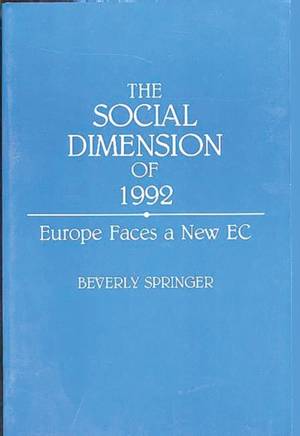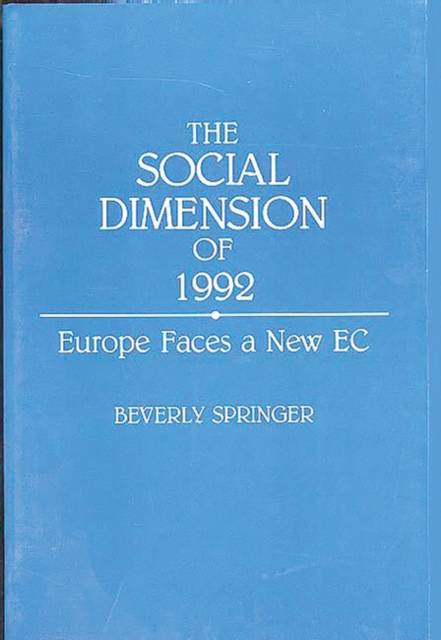
- Retrait gratuit dans votre magasin Club
- 7.000.000 titres dans notre catalogue
- Payer en toute sécurité
- Toujours un magasin près de chez vous
- Retrait gratuit dans votre magasin Club
- 7.000.0000 titres dans notre catalogue
- Payer en toute sécurité
- Toujours un magasin près de chez vous
Description
Many books and articles have been written about the importance of the 1992 initiative of the European Community for the international economy. However, the 320 million consumers who are also citizens and voters in the twelve member states of the EC must be convinced they will benefit from a more powerful EC. Many are employees who will find their work situation vastly altered by the creation of a single internal market. Until now the European Community has had little impact on the daily lives of ordinary Europeans, as national governments provide social assistance and protection. Now, that role of national governments is threatened, and Europeans will increasingly look to the EC for social policies. The EC will become a reality in their daily lives.
This book discusses the social dimension of the 1992 initiative. It deals with both the substance and politics of the social policy, explaining both the relevance and controversial aspects of the proposed social policies for the future of European integration. Based on extensive use of primary sources and interviews, the book begins with a quick review of the history and organization of the EC, discusses major developments in employment policies, and examines current developments in social policy. The work will be of interest to those interested in international management and international human resource management as well as to political scientists.Spécifications
Parties prenantes
- Auteur(s) :
- Editeur:
Contenu
- Nombre de pages :
- 184
- Langue:
- Anglais
Caractéristiques
- EAN:
- 9780275941826
- Date de parution :
- 30-01-92
- Format:
- Livre broché
- Format numérique:
- Trade paperback (VS)
- Dimensions :
- 156 mm x 234 mm
- Poids :
- 285 g

Les avis
Nous publions uniquement les avis qui respectent les conditions requises. Consultez nos conditions pour les avis.






